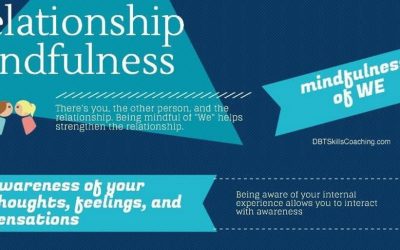You know that moment, that instant, when you know there’s going to be a conflict? The tension hits. There’s a disagreement or you’re irritated. Your voice tones change so you don’t sound melodic and inviting but lower and maybe even sharp. Your friend’s face is flat; neither of you are smiling. Both of you are feeling threatened.
Anticipation of conflict is a signal for danger. Thousands of years ago that’s how we survived, by being ready to fight or run away. That’s often not so helpful in today’s world, when talking it out or cooperating in problem-solving mode is more likely to be effective.
Years and years of surviving by fighting or running away means when you feel threatened, you automatically go into flight or fight. There are neurological changes when this happens. Your brain is in survival mode. The thinking part of your brain is not engaged. Your cooperative behavior system shuts down. It’s difficult to think clearly.
Fight or flight was helpful when we needed to escape a saber-tooth tiger or when we needed to fight off a wild boar. But our friends and family are not saber-tooth tigers or wild boars. They’re not really threatening our safety. So being ready to run away or fight with the thinking part of our brain disengaged is not the best state to be in to try to solve relationship problems! You need to use your cooperative skills. What can you do?
How to Handle Conflicts
The first step is to get your problem solving brain on board and get out of fight/flight.
STOP
Remember the STOP skill? Use STOP. Notice that you are tense and take a break. Ignore that urge to either withdraw or get into an argument.
Use GIVE
When you are ready to talk, stay relaxed and focus on being Gentle with the person you care about. Be Interested in what the other person has to say, Validate the other person, and have an Easy manner. GIVE helps you and the other person stay calm and not feel threatened. That means you can use the problem-solving part of your brain. You can see clearly, “Oh yeah, my husband/wife is not a wild boar ready to attack me.”
See Conflict as an Opportunity to Grow
When conflict starts, you will likely think “Oh no. Here it comes,” or “I can’t believe s/he is saying that.” Watch how you view a disagreement or a criticism. Consider changing your view. Could you look at conflict and criticisms as feedback and opportunities? When you have a conflict with someone, it is an opportunity to work together to solve problems. Conflict that you work on together can strengthen your relationship.
You don’t have to pretend to like conflict or look forward to it. It’s just that you recognize that conflict managed well is an opportunity to build trust and cooperation and to become closer.
Stay on the Same Side
Stay on the same side. Use words like “We” and “Let’s.” You might say, “How can we work on this together?” If your loved one is angry with you because you didn’t take out the trash, s/he could say, “How can we work this out so we’re both happier?” The two of you have a problem because you are in a relationship. It’s not one person’s problem or the other’s. Look at it as a problem in the relationship that the two of you need to address together.
Accepting Your Loved One’s Issue Is Your Issue
People are different. Situations and experiences that upset your loved one may not upset you. Imagine you go to dinner. You are easy going about food but your loved one is particular. You go to the first restaurant and s/he doesn’t see anything on the menu that is appealing. Remember, you love this person and you want him or her to be happy. So you work with him or her to solve the problem, not blame her or him for being difficult. “What would you like to do? Would you like to try another restaurant?”
Ignore Grumpiness
Everyone has bad days and sometimes people are just grumpy. Check the facts. Is their grumpiness about you, maybe they are upset and not talking about it? If it’s not about you, then, and they’re worried about taxes or they just didn’t get enough sleep, then responding to grumpiness will usually make the situation worse. There’s a time to just ignore. Give the other person a break and accept imperfection.
Respond Effectively to Inaccurate Expression of Needs
Sometimes people don’t express themselves accurately. When they need attention or they need help, they may phrase their need in terms of a complaint. “You’re always on your phone,” may really mean “I miss you.” If you think about what someone is really saying, and remember to be on the same side, you’ll respond by saying, “Let’s do something together.” Of course it would be better if they expressed themselves accurately but, oh yea, no one’s perfect!
Live a skill-full life





0 Comments